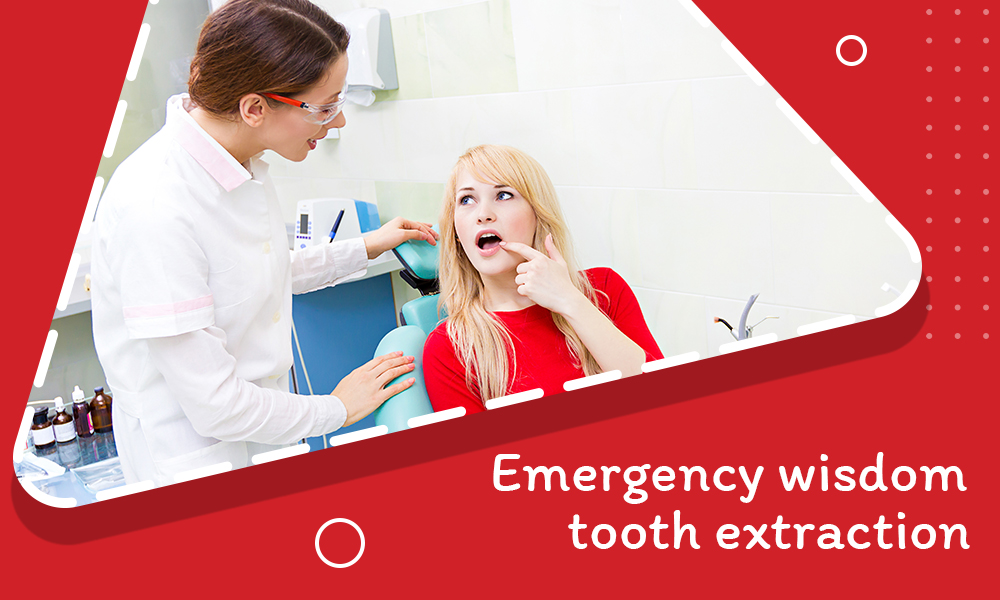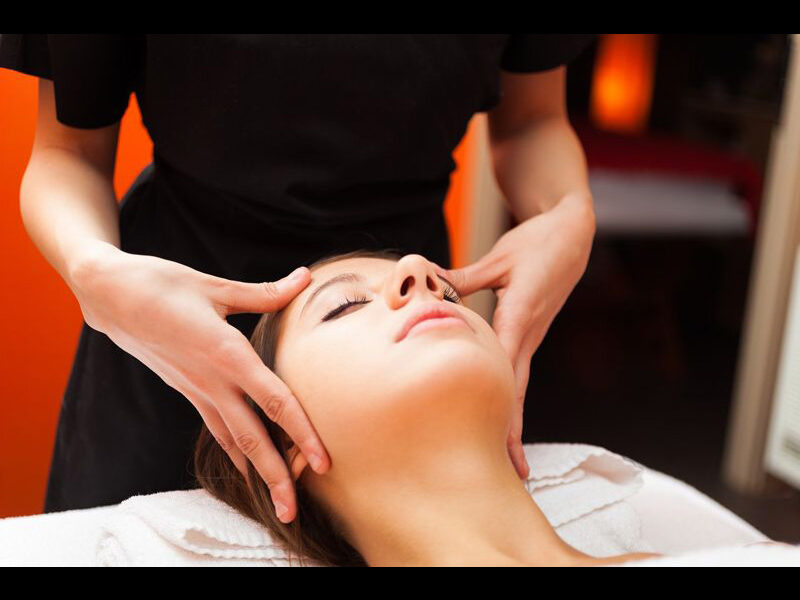Wisdom teeth are found at the extreme ends of your mouth. They are also called the third molars and usually erupt during your early twenties.
In some cases, the wisdom tooth can be horizontally angled or aligned, a condition we call “Impacted wisdom tooth”. This condition makes them misaligned. It can also make them push your teeth and their roots or shift them. As a result, they require emergency dental wisdom tooth extraction for correction.
A healthy wisdom tooth can be removed, but it is not a dental emergency in most cases. However, it can cause severe discomfort and pain with one or more impacted wisdom teeth. At this point, you may need to see an oral surgeon or dentist carry out an emergency wisdom tooth extraction.
Impacted wisdom tooth: signs to expect
Severe pain is the sign of an impacted wisdom tooth, but other symptoms include:
- Painful and swollen gums
- Headaches
- Tooth sensitivity
- Toothaches
- Jaw pain
- Infections
- Shifting teeth
Wisdom teeth are usually hidden until they erupt. This is why you need to do the x-rays, which are recommended during your annual dental check-ups as a teen. They help your dentist monitor how the teeth erupt.
When there is a partial eruption of the wisdom tooth, it causes pericoronitis. This problem makes some gum tissue cover parts of your wisdom tooth, making it easy for food debris to be trapped. Because of this, you may feel severe pain and have inflammation only managed by antibiotics or extraction.
Should I extract my wisdom tooth?
Everybody does not need to carry out wisdom teeth extraction. If there is enough room in your jawbone to accommodate them, the wisdom tooth will erupt straight and not need to be extracted. However, in most cases, the eruption of a wisdom tooth is painful and may damage other adult teeth.
We recommend oral surgery to extract this wisdom tooth to handle this case. However, your dentist will evaluate your dental situation to know whether you will have problems with your wisdom tooth from the 3D or panoramic X-ray captured as a teen.
Not extracting an impacted wisdom tooth when recommended will lead long term problems like
- Tooth damage: your tooth may crack when a wisdom tooth pushes against another. There would be a higher risk of this if your teeth were largely filled or undergone root canal treatment.
- Tooth decay: it is challenging to clean the wisdom teeth, especially in the case of a partial eruption. Flossing is almost impossible as the spaces between them are very tight and can hardly be accessed by a toothbrush or flosser. Because of this, the teeth are more prone to decay.
- Gum disease: periodontal disease or gingivitis is a typical result of impacted wisdom teeth.
-
- Infection: since it is challenging to clean the wisdom teeth, infections are expected when they become impacted. This is because there are usually more food particles and bacteria trapped behind the teeth, leading to infections of the gums or teeth.
- Teeth misalignment: the pressure your wisdom teeth apply to other teeth can make them shift, thereby becoming crowded or crooked. This can ruin your treatments with braces or aligners or even require further orthodontic treatments to correct the situation.
- Cysts: when impacted wisdom teeth are left untreated, a cyst can develop around the tooth crown and cause oral problems in the bone or adjacent teeth.
What happens during an emergency wisdom tooth extraction?
We recommend you obtain emergency dental care if you experience any impacted wisdom tooth symptoms. If your oral surgeon discovers that your wisdom teeth are impacted after an examination, they will not be able to carry out a simple extraction of the teeth; hence, it will be surgically removed.
The procedures and methods for this surgical extraction vary slightly with practitioners, but you should not expect something very different from the following:
- To begin the process, the surgeon will numb the surrounding area of your tooth with a local anaesthetic.
- If you have dentophobia, which means fear of the dentist, or you’re just anxious, your dentist will give you sedation as an inhalant, pill, or IV.
- Your dental surgeon will use an elevator and forceps to apply pressure on your tooth to open up its socket
- Then they will use the forceps to grab your tooth, rock it back and forth, and probably rotate it to separate from the ligaments and then remove it.
- After the tooth has been removed, the dentist will make a few stitches to close the wound
- After the procedure, you may be moved to the recovery room and administered some pain medication. You will also be educated on the best aftercare for your condition.
Aftercare for emergency tooth removal
You slowly feel the pain when the procedure is over because your anaesthetic will fade away. This is the time you’ll feel the most pain, but you can easily overcome them with your prescription pain medication or over the counter medications. Your oral surgeon may also give you antibiotics to lower your risk of infection.
For the earliest days after the extraction, you will feel pain and have bleeding and swelling around the wound. The pain should be mild or moderate; severe pain is rare. You may also notice that the site has agitated or broken blood clots. All these are normal and will end in three to four days. However, some people experience this for up to a week. If it lasts longer than this, meet with your dentist immediately.
Use ice packs on the jaw and warm salt water rinses to manage swelling and pain in your jaw after the wisdom tooth extraction.
Don’t drink from a straw, smoke, and spit during recovery. Also, avoid anything that will make you suck, as they can lead to a dry socket. A dry socket is a severe condition affecting the mouth in which the bone under your wound is exposed because the blood clots have broken.
Also, only eat soft foods like yoghurt, smoothies, cottage cheese, applesauce, and pudding for the first few days after your emergency wisdom tooth extraction. Do not also take very cold or hot liquids and foods during this time.
Read More – How Laboratory Tests help to Detect and Diagnose Blood Cancer


